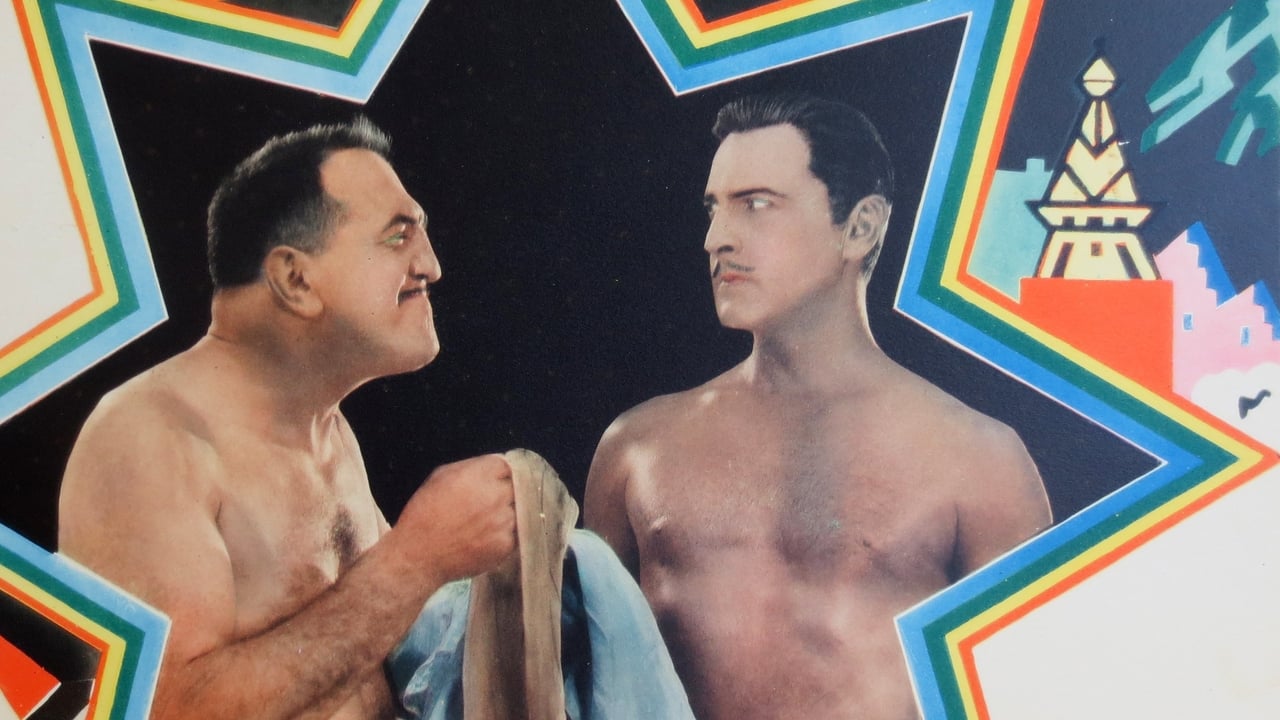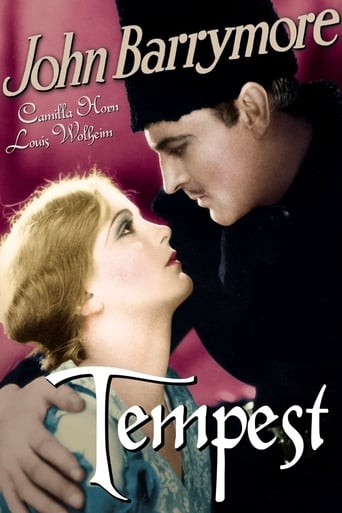

What makes it different from others?
... View MoreOne of the best films i have seen
... View MoreMost undeservingly overhyped movie of all time??
... View MoreA lot of fun.
... View MoreA really magnificent movie with great performances. Don’t get caught in the political aspects of the movie, because I think that you will loose the beauty of the story. So aside from that the movie takes place in Russia the days of the Czars. A sergeant from the lower class tries to win a promotion to lieutenant which he rightfully deserves. But it’s hard, not to say impossible for someone from the lower class to get promoted and to be accepted by the aristocrats. The situation gets more complicated when the handsome Sergeant Ivan Markov falls in love with the Princess. But this are the last days of the Czarist Russia and the times are dangerous. An unbelievably captivating movie, the first time I saw it I couldn't get it out of my mind. I had to see it a second time too and a third… this movie leaves a mark! Even though there are only few months ago that I saw it, it is already one of my favorites. It has great performances from great actors like John Barrymore, Camilla Horn, Louis Wolheim and all the others and great directing work. I think you will fall in love with this movie if you see it. I have seen films with John Barrymore but this movie made me to truly appreciate him for a strange reason. It had great energy and emotion from the story and the performances of the actors.
... View MoreI can't wrap my mind around the fact that Barrymore was in his forties when he made this film. He looks fit and fantastic, the true matinée idol. This is due in no small part to Rosher's astounding photography. This is a crazy, obsessional soap that may turn some people off, but John B. has some beautiful, moving moments that give me goosebumps. He was clearly still able to give his all at this point, and he does so here. His tearful scenes are believable and so well done. Camilla Horn was stunning and looked great with him, but she's so wooden that it dulls the effect a bit. Still, she had a long career in Germany, so I guess she couldn't have been so bad. Ivan is one big grey area when it comes to morality, and Barrymore conveys that very well.I wish he could have pulled it together long enough to save his career and life from the self-parodying buffoonery that he sank into as he dissipated. He breaks my heart on many different levels.
... View More'Tempest' gives John Barrymore plenty of chances to show his left profile. The plot -- utmost tosh, about a peasant cavalry officer obsessed with Princess Tamara during the Russian revolution -- doesn't stand up to analysis. Suffice it to say that this is one of those movies where a man keeps harassing a woman until she falls in love with him.As Tamara, the haughty White Russian princess, Camilla Horn makes a magnificent entrance on horseback, riding sidesaddle in a form-fitting outfit with gauntlet gloves. Barrymore acquits himself well with a ridiculous script. There's one painful scene in which Lieutenant Markov (Barrymore) sups large quantities of booze to show how manly he is. Knowing what alcohol did to Barrymore's life and career, I cringe when I see him drinking on the screen.Among the ridiculous elements is Boris de Fast as a gap-toothed Bolshevik whose ability to be conveniently present during all the plot twists (even surreptitiously entering a military stockade) borders on the supernatural. Ullrich Haupt, as Barrymore's villainous superior officer, is splendidly hissable in a role that seems tailored for Erich von Stroheim. Character actor Michael Mark plays one of the cavalry troopers: no dialogue, no business, but his distinctive facial structure calls attention to itself. Louis Wolheim supplies a bit too much comic relief as the bulbous and bull-like Bulba: I guess he must be Taurus Bulba. Wolheim plays a cavalry sergeant, but his immense bulk makes him implausible in the role; Wolheim is built more like an infantryman.By far, the greatest appeal of this movie is Charles Rosher's dazzling camera-work, supplemented by the usual brilliant production design of William Cameron Menzies. The opening scene is a travelling shot of a military garrison: the camera is clearly panning across models, but they're as exquisitely detailed as one of those miniature villages that used to be so popular in Britain. Eventually the camera turns round a corner to show men walking past full-scale buildings ... but the cut is so well done, it's nearly seamless. Elsewhere, there's a splendid subjective shot through the bottom of an upturned glass ... and a fine example of double-exposure as the delirious Barrymore, rotting in the stockade, envisions his comrades in battle.I was also impressed with the consistent use of dissolves whenever printed words, handwriting or inscriptions were shown on screen. As all the characters are Russian, we first see signs and captions written in Cyrillic, followed by a dissolve into English translations. (Compare this with 'The Last Command', made at a different studio this same year, in which a Russian telegram is shown on screen in English.) Just a couple of times in 'Tempest' the dissolve device is not used, and there's one bizarre shot in which a handwritten note reading 'Do not disturb' in English is posted on the same door as a sign reading 'Commissar' in Cyrillic. Still, I'm vastly impressed that the art department went to so much trouble.Although the script is rubbish -- and I'm dismayed that the Bolsheviks are depicted favourably -- Barrymore's role has an impressive amount of moral ambiguity. Lieutenant Markov is basically moral and ethical, but he becomes obsessed with Princess Tamara ... and his behaviour degenerates accordingly. The script (and Barrymore) could have taken an easier route by contriving to make all of Markov's reversals a matter of circumstances rather than down to Markov's personal flaws.Despite a howlingly implausible script, the visuals and the acting are so good in this film that I'll rate it 7 in 10.
... View More1928 was a year for Russian Revolution stories in Hollywood movies. Probably the best was von Sternberg's THE LAST COMMAND with Emil Jannings, Evelyn Brent and William Powell giving great performances. This piece has great performances from John Barrymore and Louis Wollheim, but the female lead, Camillia Horn, producer Joseph Schenck's mistress, gives a performance that is largely composed of staring haughtily. Well, it's the way her part is written, I suppose in this melodramatic tripe. She despises Barrymore, she loves Barrymore, she despises Barrymore, then comes the revolution....Even uncredited directing by Lewis Milestone couldn't help. Horn can't have been a bad actress with a sixty-year career in Germany, but she made this movie and the stinker ETERNAL LOVE in Hollywood, again with Barrymore under Lubitsch's direction and returned to Germany. Maybe she stared haughtily at Schenck too often.What is worthwhile in this film is the late silent camerawork, courtesy of Charles Rosher. The late 1920s produced camerawork that moved about like a soap bubble on the breath of imagination. The advent of sound tied it down to a neurotic adoration of the still shot that it did not begin to recover from for a quarter of a century.But this picture features camerawork that is astonishing. The party sequence, is balletic; the prison sequences trap you in bars of darkness and Rosher backlights everyone with a star halo that still takes your breath away, even in the scratchy prints that survive. This is one every fan fan needs to watch: not for the story, which is awful, not for the performances, some of which are excellent, but for the pictures. Look at every single frame. You won't regret it.
... View More